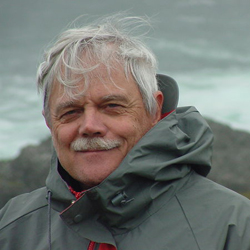Richard LeBlond
Tragic events often change the lives of survivors. Some become part of the team raising money to find a cancer cure. Others rally against drunk drivers or lobby on behalf of safer air travel. At least a small amount of survivor guilt is probably involved in these life changes. But I’m sure most are inspired by the higher motive of not letting the victim or victims die in vain. The survivor feels a responsibility, even an obligation, to set things right.
For nearly 40 years, I was burdened by that obligation because I was unable to fulfill it from a failure to write. One day in Athens, Greece, in the mid-1970s, I witnessed hundreds of men and women holding hands and marching unarmed towards the sound of automatic weapon fire – that is, the sound of carnage – during an uprising under the military dictatorship of Colonel Georgios Papadopoulos.
It was one of several traumatic events I witnessed or endured during two and a half years in southern Europe and north Africa. The trip started as an open-ended vacation, but by the time it was over, I had spent a day surrounded by Moroccan police armed with submachine guns; sat in a Guardia Civil interrogation room convinced I would be sentenced to six years and a day in a Spanish prison; befriended an American who, against his will, had become a pig inspector in Yugoslavia; then had my own personal encounter with Athens’ secret police. And for a while I worked for a newspaper that was likely financed by the CIA. (I think this paragraph would make a good movie.)
I returned to the States in 1974 full of these incredible stories, but it took me nearly 40 years to write them. I lacked confidence. More than once I told myself I was a second-rate writer with a third-rate mind. During that long interim, I kept hearing the voices of the Athens marchers and knew their story might die with me if I couldn’t set it down. In all those years, I never found another account of what I had witnessed.
I had written a brief op-ed piece about the marchers back in 2002, but I still needed to write the whole story. By the winter of 2010, I realized I would have to write it whether I was ready or not. Nearly 70 years old and 13 years into my COPD, I had to assume I was running out of time. And I wanted to relate all of my adventures in the Mediterranean, or at least as many as I could squeeze past my censor. Some things happened others don’t need to know about, and there is embarrassment enough in what the censor allowed. Autobiography teeters on the edge between which lies to tell and what truths to leave out.
February 2010 was a good time to be indoors. Thanks to the closing window of opportunity, I had reached a truce with my demons, and out poured the stories. I wrote nonstop, six to seven days a week, 8-10 hours a day for two months. I began each day listening to the same piece of music, during my morning walk, a 10-minute-long Salve Regina written in the 1500s by a Spanish priest during the Inquisition. It set the perfect mood, as my journey had begun among the gitanos on the south coast of Spain, where I had my own taste of the Inquisition with General Franco’s army of police.
During the decades of not writing, I had told my stories several times to friends, which helped to keep details alive. Even so, I had forgotten a few names, and I’m fairly certain one character was actually two. But the stories remained clear, and I can still experience their actuality in my mind. That is especially true of the Athens marchers.
Hemingway said “The first draft of anything is shit.” But for me the first draft became another level of inspiration, and I wrote with a greater sense of responsibility, propelled by the marchers. Every time I came to their passage, I bawled from reliving the experience. Even now, I bawl when I read that passage. It is my own little post-traumatic stress disorder.
I found the task of editing and rewriting to be enjoyable and fulfilling, like working on a four-dimensional tapestry. The first draft was the warp, and it became a process of adding on and pulling out, of changing forms and colors. The rewriting process brought new insights and taught me how to let things go. For the first time in my life, writing felt like art.
 Richard LeBlond is a retired biologist living in North Carolina. Since 2014, his essays and photographs have appeared in numerous U.S. and international journals, including Montreal Review, Hippocampus, Compose, Smoky Blue, Appalachia, and Still Point Arts Quarterly.
Richard LeBlond is a retired biologist living in North Carolina. Since 2014, his essays and photographs have appeared in numerous U.S. and international journals, including Montreal Review, Hippocampus, Compose, Smoky Blue, Appalachia, and Still Point Arts Quarterly.
